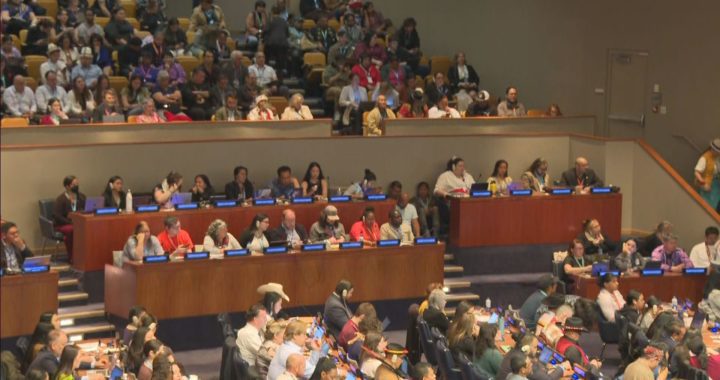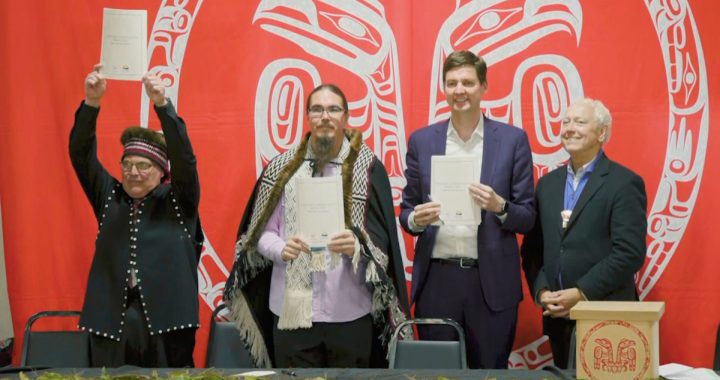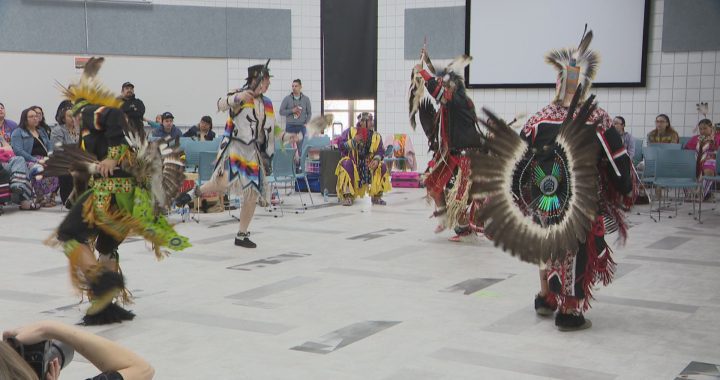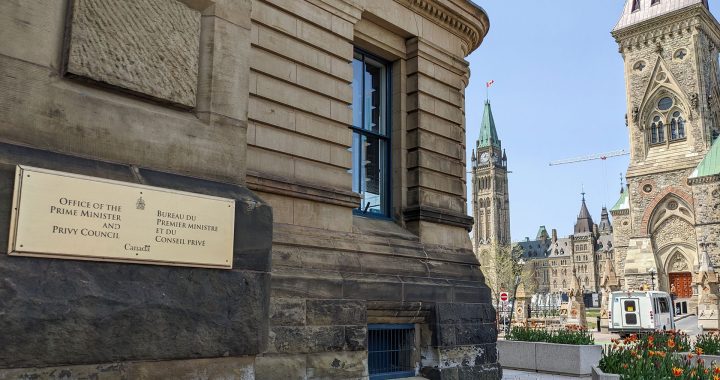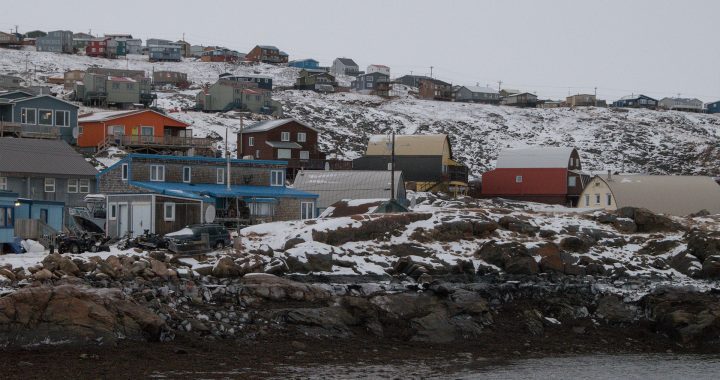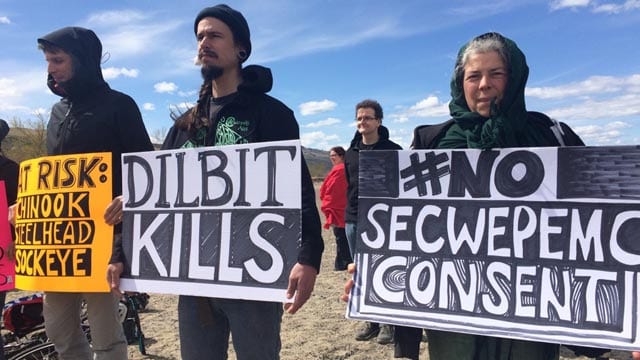
People rally at a "Picnics not Pipelines" event in Kamloops, B.C. April 22, 2018. Lucy Scholey/APTN

APTN News
The Federal Court of Appeal says six legal challenges to the Trans Mountain pipeline project focusing on Indigenous consultation can proceed.
The federal government has twice approved a plan to triple the capacity of an existing pipeline from Alberta’s oilpatch to a terminal in Burnaby, B.C.
Last year the Federal Court of Appeal tore up the original approval, citing both an insufficient environmental review and inadequate consultations with Indigenous communities.
The Liberals say they fixed both problems and approved the expansion a second time in June.
Environmental groups and First Nations sought leave to appeal, arguing the ecological assessment and consultation process were deficient the second time as well.
The court has released a written decision saying it will allow six of the 12 requests to appeal.
It says the allowed challenges are limited to the narrow issue of the adequacy of the consultation with Indigenous Peoples and related issues between Aug. 30, 2018, the date of the court’s earlier decision, and June 18, 2019, when the government approved the project a second time.
At a June 18 press conference in Ottawa, Natural Resources Minister Amarjeet Sohi said the government had now fulfilled the Federal Court of Appeal’s conditions on Indigenous consultation.
“Our consultation was very thoughtful, meaningful, two-way, and we listened very carefully to the concerns from the communities,” he said.
“We are satisfied that we have discharged our duty to consult with Indigenous communities.”
Prime Minister Justin Trudeau said at the same conference that despite the government’s efforts, “there are people out there for whom no amount of accommodations or conditions or changes to the plan would have made the purchase of the Trans Mountain pipeline, and the approval of the Trans Mountain pipeline expansion, acceptable.
“Those people will not be convinced by the arguments that we have put forward. We accept that, and they will use the legal means at their disposal to advance that argument.”
But First Nations leaders immediately fired back.
At a press conference in Vancouver several leaders said the Trudeau government’s approval of the project represented a conflict of interest, since Canada now owns the pipeline. They also said the renewed consultation process was rife with problems.
Tsleil-Waututh Nation (TWN) Chief Leah George-Wilson said TWN “continues to withhold our free, prior and informed consent and are prepared to use all legal tools to ensure our governance rights are respected.”
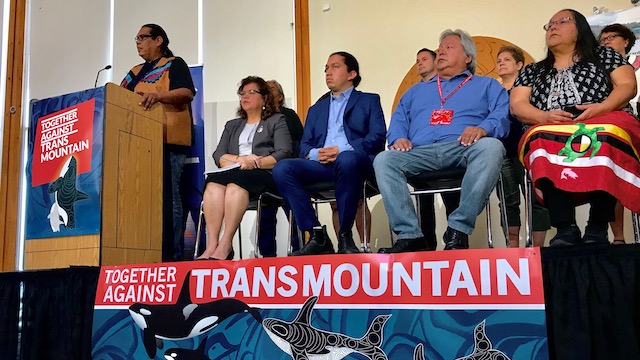
First Nations leaders stood united against the Trans Mountain Pipeline expansion last June following Canada’s announcement it was proceeding with the project. APTN file photo.
On June 18 Trudeau defined free, prior and informed consent — which the Liberals have vowed to observe and practice via commitments to implement the Truth and Reconciliation Commission’s calls to action and the United Nations Declaration on the Rights of Indigenous Peoples — as “engaging, looking with [First Nations], listening to the issues they have, and responding meaningfully to the concerns they have wherever possible.”
Trudeau explained the consultations resulted in “changes to the process, to the NEB conditions…and that is an essential part of free, prior and informed consent.”
The court has ordered that the six legal challenges proceed on an expedited basis. It says short and strict deadlines for the steps in the litigation will be set.
The groups granted leave to appeal include the Squamish Nation, Tsleil-Waututh Nation, Upper Nicola Band, Coldwater Indian Band, Tk’emlúps Te Secwepemc of the Secwepemc Nation, and seven Ts’elxweyeqw Tribes.
Environment groups still say there are not adequate protections for endangered marine species that will be affected by tanker traffic picking up oil from the terminal in suburban Vancouver.
Several First Nations say the federal government came into the most recent discussions having predetermined the outcome.
The federal government bought the existing pipeline and the unfinished expansion work for $4.5 billion last year, promising to get it over the political opposition that had scared off Kinder Morgan Canada from proceeding.
The move disappointed environmentalists and Indigenous peoples, who say the global climate can’t handle more emissions from Alberta’s oilsands and the eventual burning of the petroleum they produce.
The Liberals say they are working with Indigenous stakeholders interested in buying the pipeline and will use any profits from the project to fund Canada’s transition to a cleaner-energy economy.
In a written statement Wednesday afternoon George-Wilson said she is “confident that the court will once again decide in our favour.”
She said the Tsleil-Waututh Nation “participated in consultation in good faith again, but it was clear that Canada had already made up their mind as the owners of the project. Canada continued to do the legal minimum and in our view, fell well below the mark again.
“[T]he federal government has again failed to respond to the concerns we have been raising in regards to this project. This feels like déja vu,” the chief added. “We have no choice but to appeal again and we expect the same results – the approval of the Trans Mountain pipeline will be overturned.”
With files from The Canadian Press.
[email protected]
@aptnnews




